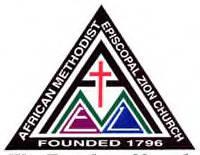16th Street Baptist Church bombing
Thomas Elkins designed a device that helped with the task of preserving perishable foods by way of refrigeration. At the time, the common way of accomplishing this was by placing items in a large container and surrounding them with large blocks of ice. Unfortunately, the ice generally melted very quickly and the food soon perished.
Elkins’ device utilized metal cooling coils which became very cold and would cool down items which they surrounded. The coils were enclosed within a container and perishable items were placed inside. The coils cooled the container to a temperature significantly lower than that inside of a room thereby keeping the perishable items cool and fresh for longer periods of time.
Elkins patented this refrigerated apparatus on November 4, 1879 and had previously patented a chamber commode in 1872 and a dining, ironing table and quilting frame combined in 1870.
An improved chamber commode (toilet) was patented by Thomas Elkins on January 9, 1872. Elkins’ commode was a combination bureau, mirror, book-rack, washstand, table, easy chair, and chamber stool. It was a very unusual piece of furniture.
Autherine Juanita Lucy was the first black student to attend the University of Alabama, in 1956. She was born on October 5, 1929 in Shiloh, Alabama and graduated from Linden Academy in 1947. She went on to attend Selma University in Selma, and the all-black Miles College in Fairfield – where she graduated with a BA in English in 1952.
Later in 1952, at the encouragement of and along with a Miles classmate, Pollie Ann Myers, she decided to attend the University of Alabama as a graduate student but, knowing that admission would be difficult due to the University’s admission policies, she and Myers approached the National Association for the Advancement of Colored People (NAACP) for help. Thurgood Marshall, Constance Baker Motley, and Arthur Shores were assigned to be their attorneys. While they started preparing her case, she worked as a secretary. Court action began in July 1953. (more…)
12-02 marks the birthday of Charles Harris Wesley in 1891. He was an African-American historian, educator, and minister who was an early proponent of African-American studies.
Born in Louisville, Kentucky, Charles Wesley attended public schools in his hometown of Louisville, Kentucky and then went on to receive a B. A. at Fisk University in 1911, an M. A. in economics at Yale University in 1913, and a Ph.D. from Harvard University in 1925. Wesley’s doctorate in history was the third awarded by Harvard to an African-American. Wesley served on the Howard University faculty from 1913 to 1942. (more…)
 Eliza Ann Gardner is regarded as the “mother” of the African Methodist Episcopal Zion (AMEZ) Missionary Society and was one of New England’s most tenacious defenders of women’s equality in religious matters.
Eliza Ann Gardner is regarded as the “mother” of the African Methodist Episcopal Zion (AMEZ) Missionary Society and was one of New England’s most tenacious defenders of women’s equality in religious matters.
She was born in New York City on May 28, 1831, the daughter of James and Eliza Gardner. When she was young, the family moved to the predominantly black West End section of Boston, where her father enjoyed a profitable career as a contractor for sailing vessels. His work made it possible for Gardner to enjoy a comfortable childhood, but she quickly learned that many others of her race were less fortunate, and was taught that she had an obligation to help them. Her family was active in the local African Methodist Episcopal Church, and their home served as a station for the Underground Railroad, which smuggled runaway slaves from the South to freedom.
Gardner’s interest in slavery intensified because of her education at the only public school for black children in the city, which was taught by abolitionist teachers. As a result, she became acquainted with many nationally famous abolitionist leaders. An excellent student, Gardner earned a number of scholarships. However, as few black women at the time were able to pursue higher education or professional careers, she learned the art of dressmaking to support herself once she finished school. (more…)
Alexander Miles, who contributed to the elevator industry, was an African-American inventor of the late 19th century who was able to transcend racial barriers in the United States.
Miles attached a flexible belt to the elevator cage, and when the belt came into contact with drums positioned along the elevator shaft just above and below the floors, it allowed the elevator shaft doors to operate at the appropriate times. The elevator doors themselves were automated through a series of levers and rollers.
Before working on elevator engineering, Miles experimented with the creation of hair products. The influence of his elevator patent is still seen in modern designs, since the automatic opening and closing of elevator and elevator shaft doors is a standard feature.
Miles, who was born in Duluth, Minnesota, designed an elevator that was able to open and close its own doors and the elevator shaft doors. When the elevator would arrive or depart from a given floor, the doors would move automatically. Previously, the opening and closing of the doors of both the shaft and the elevator had to be completed manually by either the elevator operator or by passengers, contributing greatly to the hazards of operating an elevator.